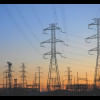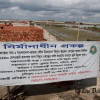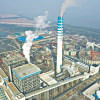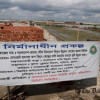Rampal power cost to rise significantly
The proposed coal-fired Rampal power plant is heavily subsidised and its electricity generation cost would be 32 percent more than the average power prices in Bangladesh, said a financial analysis report on the plant.
The project should be cancelled as it would set the country back, said the report by Institute for Energy Economics and Financial Analysis (IEEFA). It suggested that Bangladesh should invest in solar energy.
“We suspect the project is being promoted as a means to sell Indian coal to Bangladesh and as a way to skirt Indian policy against building a coal plant so near the Sundarbans, a protected forest and World Heritage Site,” the US-based research organisation said.
The report titled “Risky and Over-Subsidised: A Financial Analysis of the Rampal Power Plant” was published on IEEFA's website yesterday. It is expected to be released at a programme in Dhaka today.
Jai Sharda, managing partner of Equitorial India, and Tim Buckley, director of energy finance studies at IEEFA, prepared the report.
The study pointed out 10 key risks of the project.
According to the research, the plant would impose upward pressure on electricity rates in Bangladesh; significant subsidies have failed to rein in costs of Rampal electricity; delay in constructing the plant would raise its capital costs and the project faces major community opposition.
Besides, there is no guarantee that the plant would achieve an 80-85 percent plant load factor (PLF) over the life of the project; the plant's reliance on imported coal would expose consumers to vagaries of global coal markets; the project site is on the channel of storm surge; there is lack of clear management plan for accidents and emergencies; and the financing of the plant would put Indian Exim Bank at risk. As Bangladesh electricity system is already loosing nearly $1 billion a year, the Rampal would make the situation even worse, said the report.
The proposed 1,320-megawatt plant would be implemented by Bangladesh-India Friendship Power Company Limited (BIFPCL), a joint venture of Bangladesh Power Development Board and India's largest power producer, NTPC Limited.
The project, said the report, was being designed around outdated supercritical technology. It was being heavily subsidised by the Indian and Bangladeshi governments.
Without subsidies, the plant's generation costs would have been 62 percent higher than the current average costs of electricity production in Bangladesh.
The project poses specific risks to EXIM Bank as it is set to provide a loan of $988 billion at interest rates well below market levels, said the research.
Although the global coal price is low now, it is more than possible that the cost of coal use would go up and the world would adopt more stringent carbon policy, the IEEFA said. “Rampal customers would bear the brunt of such increases.”
The Bangladesh government has started to seriously pursue grid-connected solar power generation, aiming for 1.7GW of solar capacity by 2021 and 6GW by 2030. It has drawn investment capital proposals from around the world in this sector, and could move significantly faster, the report added.
Uzzal Chakraborty, managing director of BIFPCL, said he couldn't understand why the report focused only on Rampal plant, whereas there are many other proposed coal-fired power plants in the country.
It would have been better had the research organisation discussed other coal-fired projects, he told The Daily Star yesterday.
Asked whether the electricity price would go up, he said the government had been providing subsidy for gas to keep the electricity price low. But the electricity price would not increase that much as forecasted in the report.

 For all latest news, follow The Daily Star's Google News channel.
For all latest news, follow The Daily Star's Google News channel. 








Comments